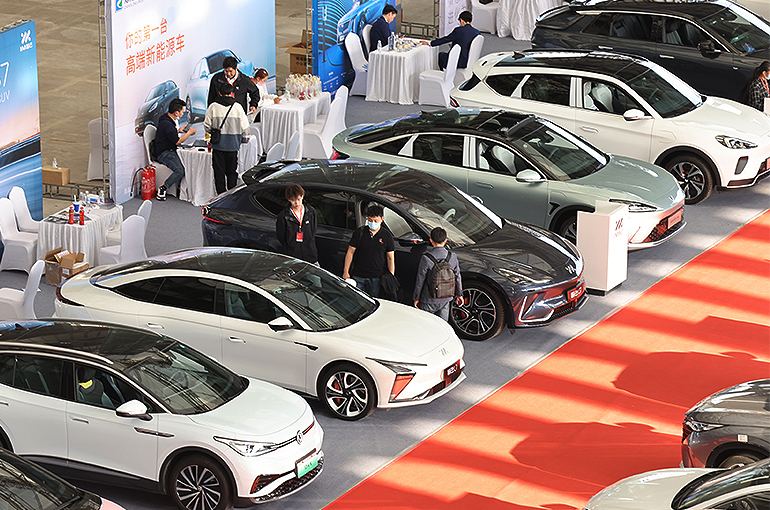Select Language:
China has increased the technical standards for battery-powered and plug-in hybrid electric vehicles qualifying for reduced purchase tax exemptions over the next two years. The new requirements include stricter driving range and energy efficiency criteria to promote advanced energy-saving technologies and enhance vehicle performance.
For battery electric vehicles, the energy consumption must fall within the limits established by the national standard GB 36980.1-2025, which takes effect on January 1. This move responds to ongoing improvements in energy efficiency, driven by technological advancements, and aims to push manufacturers toward higher standards.
Plug-in hybrid electric vehicles, including extended-range models, are now required to have a minimum all-electric driving range of 100 kilometers — significantly higher than the previous minimum of 43 kilometers — along with specific fuel consumption standards. Leading models from automakers like BYD and Roewe generally exceed this 100-kilometer electric range.
Manufacturers must update their applications by December 12 for models listed in the tax exemption catalog that do not meet the new standards. The updates are meant to keep policies aligned with the fast-paced evolution of electric vehicle range and extended-range technologies, ensuring the industry remains at the forefront of innovation.
Raising these standards is also designed to motivate automakers to boost research and development efforts, phase out outdated models, and shift focus from volume to quality growth. This approach aims to provide a stable policy environment that supports long-term industry development.
The policy of exempting new energy vehicles (NEVs) from purchase taxes was first introduced in 2014 and has been extended multiple times — in 2017, 2020, 2022, and 2023 — with the latest extension running until the end of 2027. From 2014 through 2025, NEVs benefit from full tax exemption. Starting in 2026, they will qualify for a 50% reduction in purchase tax, with a maximum exemption of 15,000 yuan (approximately $2,110) per vehicle.
Since the launch of this policy, China’s NEV market has experienced rapid growth. In 2015, China became the world’s largest NEV market and has maintained its leading position each year since then.
In the first eight months of this year, domestic NEV sales increased by 30%, reaching 8.09 million units compared to the previous year. These vehicles now account for nearly half (48%) of total vehicle sales, and the share is projected to reach 50% by year’s end.





